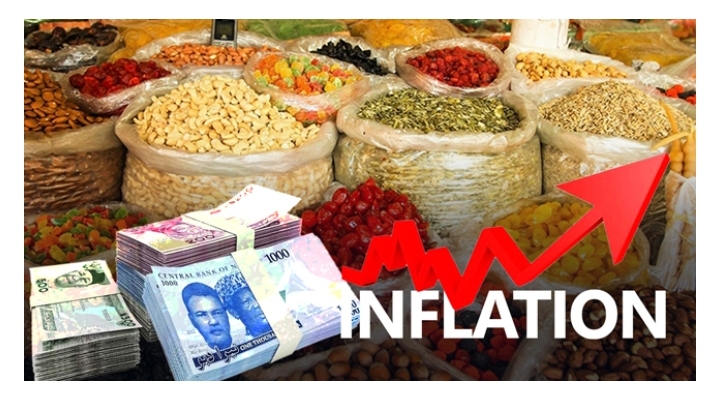Nigeria’s Inflation Rate Hits 33.88% in October 2024: What You Need to Know
Nigeria’s inflation rate continues to climb, reaching 33.88% in October 2024, up from 32.7% the previous month. This represents a 1.18 percentage point increase, according to the latest Consumer Price Index (CPI) report from the National Bureau of Statistics (NBS), released on November 15, 2024.
The NBS cited two primary factors for the rise in inflation: rising transportation costs and higher food prices. On a year-over-year basis, October’s inflation rate was 6.55 percentage points higher than in October 2023, which stood at 27.33%. This indicates a significant increase in the cost of goods and services compared to the same period last year.
Looking at the month-on-month figures, inflation in October showed a slight uptick, with a 2.64% increase in average prices. This is a 0.12% rise from September’s rate of 2.52%, signaling that the rate of price growth is accelerating. Food Prices Soar
Food inflation was particularly high in October, with the food inflation rate rising to 39.16% compared to 31.52% in October 2023. This marks a substantial year-on-year increase of 7.64 percentage points. The NBS pointed to several staples whose prices have driven the rise, including rice, guinea corn, yam, palm oil, vegetable oil, and even popular beverages like Milo and Bournvita.
On a monthly basis, food inflation in October was 2.94%, an increase of 0.30% from September’s 2.64%. The primary contributors to this rise included prices for items such as palm oil, fresh and dried fish, various meats, and essential cereals like rice and flour.
Looking at the broader trend, the average annual food inflation rate for the 12 months ending in October 2024 was 38.12%, up from 26.33% in October 2023, marking an 11.79% increase. This highlights the ongoing challenges Nigerian households face as food prices remain persistently high. What’s Driving the Inflation?
The overall increase in inflation can largely be attributed to persistent supply-side pressures. The cost of transportation, in particular, has risen, contributing to higher costs for goods across the board. Meanwhile, food prices have been under pressure due to a combination of factors, including seasonal changes, fluctuating exchange rates, and high demand for basic commodities.
As inflation continues to climb, the Nigerian economy faces a tough road ahead, with many households already feeling the strain. With rising transportation and food prices, the cost of living is expected to keep increasing, affecting everyday Nigerians and their purchasing power.
As inflation shows no signs of slowing down, many experts and households are bracing for more economic challenges in the months ahead. For businesses and consumers alike, adjusting to the new reality of higher costs is becoming an increasingly pressing concern.






